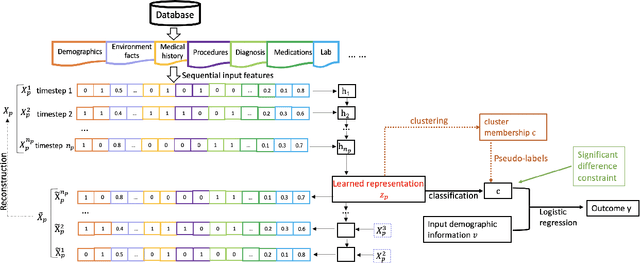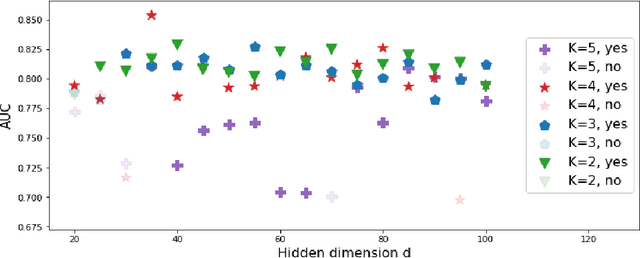DICE: Deep Significance Clustering for Outcome-Aware Stratification
Paper and Code
Jan 07, 2021



We present deep significance clustering (DICE), a framework for jointly performing representation learning and clustering for "outcome-aware" stratification. DICE is intended to generate cluster membership that may be used to categorize a population by individual risk level for a targeted outcome. Following the representation learning and clustering steps, we embed the objective function in DICE with a constraint which requires a statistically significant association between the outcome and cluster membership of learned representations. DICE further includes a neural architecture search step to maximize both the likelihood of representation learning and outcome classification accuracy with cluster membership as the predictor. To demonstrate its utility in medicine for patient risk-stratification, the performance of DICE was evaluated using two datasets with different outcome ratios extracted from real-world electronic health records. Outcomes are defined as acute kidney injury (30.4\%) among a cohort of COVID-19 patients, and discharge disposition (36.8\%) among a cohort of heart failure patients, respectively. Extensive results demonstrate that DICE has superior performance as measured by the difference in outcome distribution across clusters, Silhouette score, Calinski-Harabasz index, and Davies-Bouldin index for clustering, and Area under the ROC Curve (AUC) for outcome classification compared to several baseline approaches.
 Add to Chrome
Add to Chrome Add to Firefox
Add to Firefox Add to Edge
Add to Edge